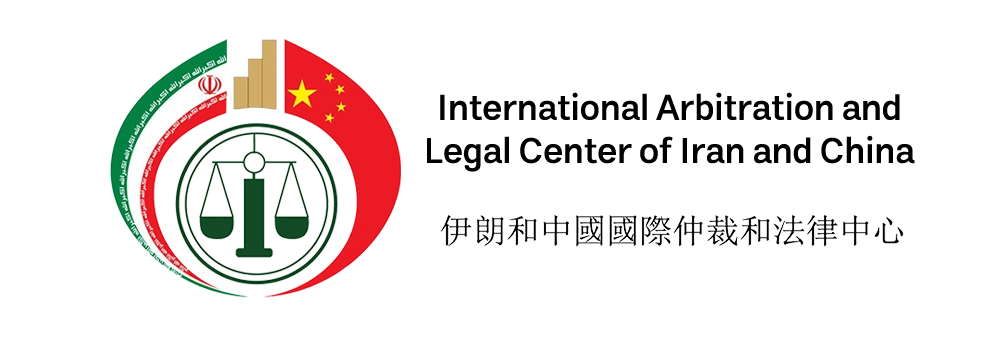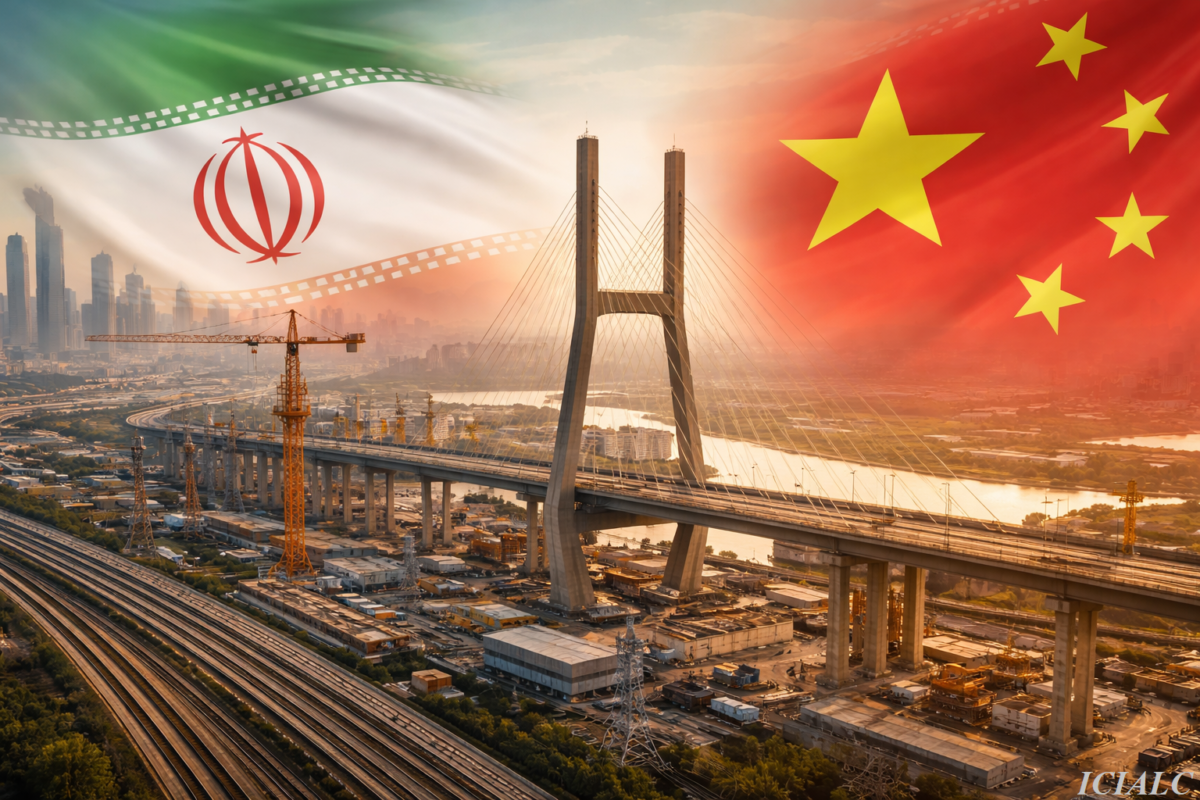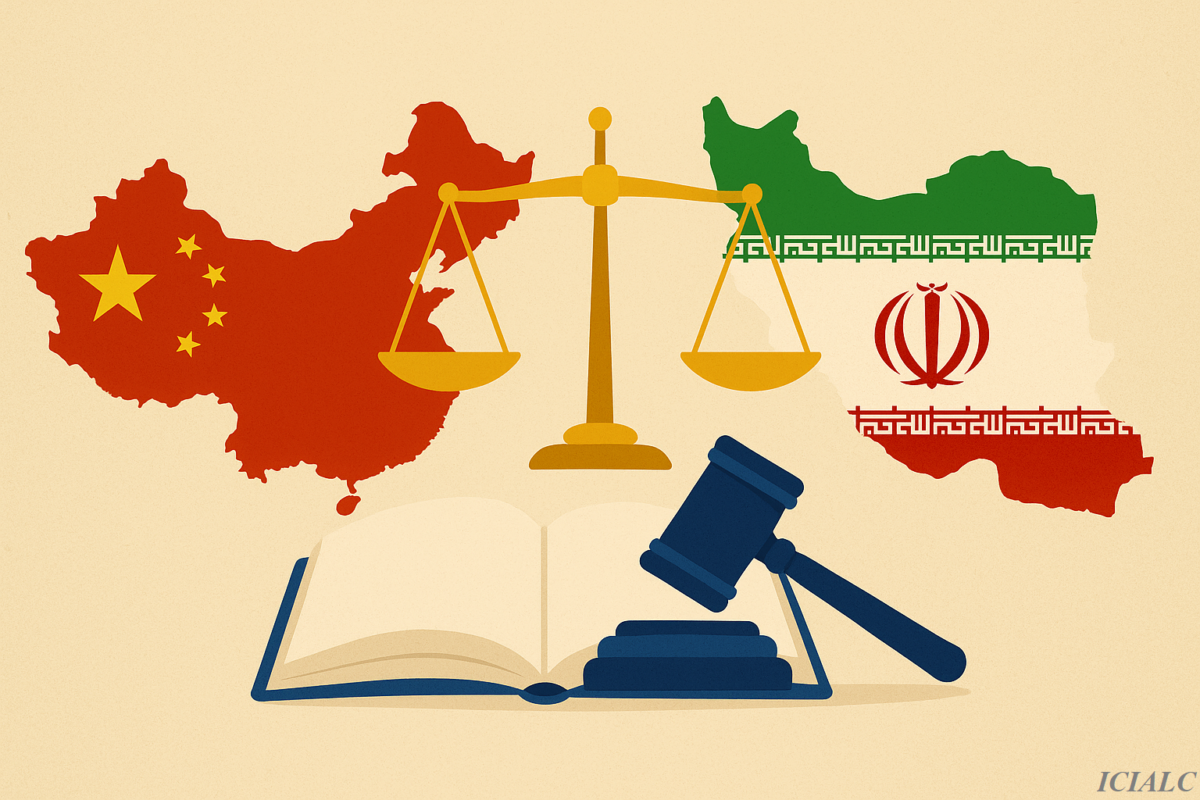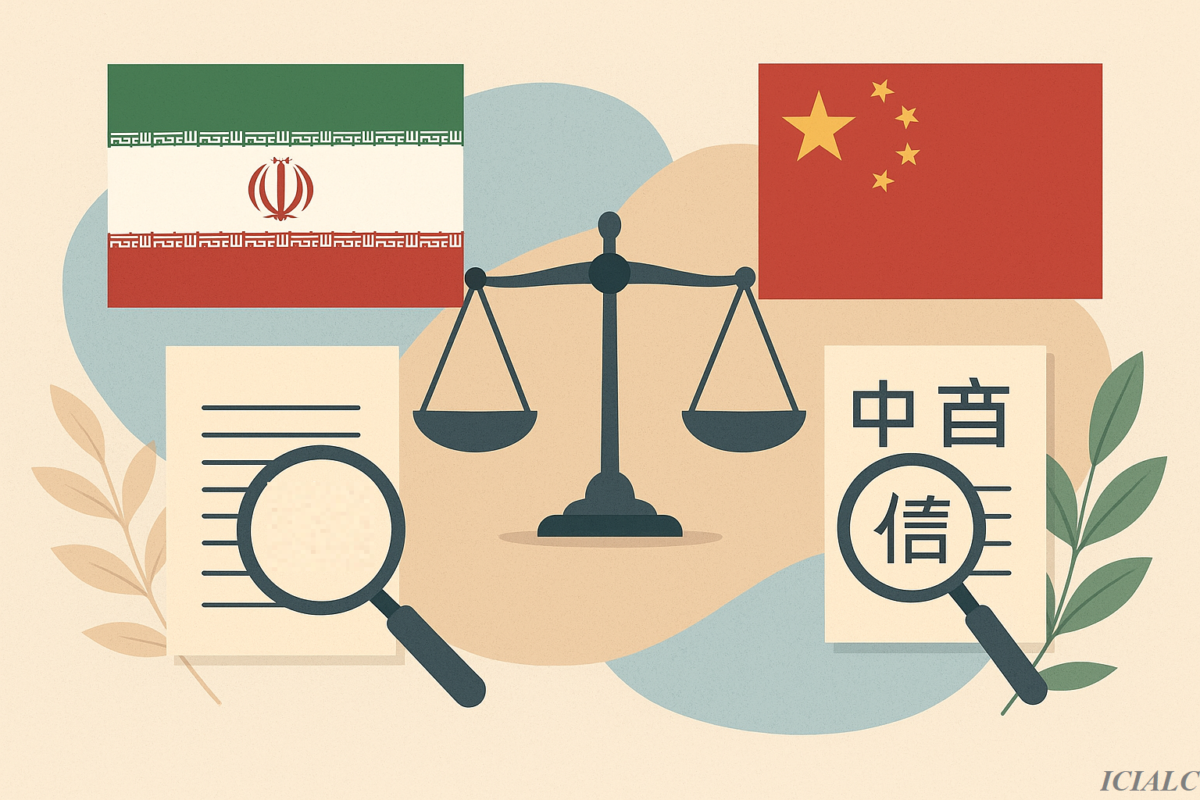powers, has played a decisive role in fostering regional and international trade relations. Extensive cooperation in the import of raw materials, export of industrial products, and the implementation of joint projects in energy, construction, and transportation sectors has led to an unprecedented expansion of trade and transport contracts between the two countries.
Transportation of goods ( whether by sea, land, or air ) forms the backbone of these collaborations, and any disruption in the execution of transport contracts can result in significant economic loss for both parties. Therefore, the accurate drafting of such contracts and a proper understanding of the legal obligations involved play a critical role in ensuring the success of Iran–China trade relations.
However, differences between the two countries’ legal systems, the diversity of transport modes, and the absence of a comprehensive bilateral agreement on the recognition and enforcement of judgments or arbitral awards have contributed to the emergence of numerous disputes. These disputes typically relate to delays in delivery, cargo damage during transit, breaches of insurance obligations, or differing interpretations of contract provisions.
Accurate identification of legal causes behind these disputes, a comparative analysis of Iranian and Chinese laws, and familiarity with effective mechanisms for dispute resolution—particularly arbitration and mediation—are of paramount importance for international business practitioners and commercial lawyers. This article aims to provide an analytical and practical study of the major legal challenges and risks in Iran–China transport contracts, and to present practical recommendations for mitigating and managing such disputes.
Legal Framework Governing Iran–China Transport Contracts

International transport contracts between Iran and China operate within a complex network of domestic laws, international regulations, and established trade customs. Given the diversity of transport routes (maritime, land, rail, and air) and the differences between the two legal systems, these contracts require careful legal analysis to ensure clear definition of the parties’ rights and obligations and to predict potential disputes.
Legal Framework in Iran
In Iran’s legal system, the transportation of goods forms a fundamental part of commercial law, governed primarily by several statutory sources:
a) The Iranian Commercial Code
The Commercial Code of 1932, specifically Chapter Eight (Articles 377–393), directly regulates relationships among the carrier, consignor, and consignee. Under this Code, the carrier is liable for the safety of goods from receipt to final delivery unless they can prove the occurrence of force majeure or the consignor’s fault. This principle aligns with international transport standards and serves as the legal foundation for determining liability in cases involving damage or delay.
b) The Maritime Law of 1964
The Maritime Law is one of Iran’s most specialized pieces of legislation in the field of international transport. It comprehensively addresses issues such as bills of lading, marine insurance, general average, carrier liability, and maritime transport claims. Given that most trade between Iran and China relies on sea routes—from southern Iranian ports to eastern and southern Chinese ports—this law is particularly pivotal.
c) Customs Regulations and Executive Bylaws
In addition to the foregoing, Iran’s customs regulations form an integral part of the legal framework governing international transport. These include procedures for cargo clearance, shipping documentation, inspection, and carrier obligations concerning declaration of value and commodity type. For multimodal transportation (e.g., sea carriage to Bandar Abbas followed by land delivery to the border), the Ministry of Roads and Urban Development’s executive bylaws also apply.
Legal Framework in China
China’s transport law framework has undergone significant development in recent decades and now closely aligns with international standards.
a) The Contract Law of the People’s Republic of China (PRC)
Adopted in 1999 and later integrated into the 2021 Civil Code, this law provides a general framework for contract formation and enforcement. The transport section covers contract conclusion, mutual obligations, termination conditions, breach of contract, and civil liabilities. Similar to Iran’s Commercial Code, it emphasizes the principles of contractual freedom and pacta sunt servanda (performance of obligations).
b) The Maritime Law of the PRC (1992)
China’s Maritime Law is a comprehensive instrument consisting of over 300 articles addressing bills of lading, marine insurance, damages, limitation of liability, and ship collision claims. Its importance in Iran–China trade arises from the predominance of maritime shipping between the two nations.
c) Regulations on Road, Rail, and Air Transport
The Ministry of Transport, along with national entities such as China Railway and Air China Cargo, operates under specific administrative regulations. For combined or multimodal transportation, the Multi-Modal Transport Regulations apply, emphasizing carrier responsibility throughout the logistics chain.
International Conventions and Standards
While Iran and China are not parties to all major international transport conventions, many of these conventions and trade usages are still invoked in practice and influence interpretation of transport contracts. Key instruments include:
The Hamburg Rules (1978), which extend carrier liability, particularly concerning delayed delivery.
The Hague–Visby Rules (1968), still widely referenced in judicial practice worldwide.
The CMR Convention (1956) on international road transport, defining carrier obligations and liability limits.
The Incoterms 2020, which, though not a treaty, provide standardized trade terms clarifying buyer and seller responsibilities, including insurance, freight costs, and risk transfer.
Legal Gaps and Conflicts
Despite broad trade relations, there remains no bilateral treaty between Iran and China governing transport or reciprocal recognition of court judgments and arbitral awards. Consequently, contractual disputes are subject to different legal regimes, and enforcement of foreign judgments or awards in the counterpart country can be problematic.
Furthermore, disparities between the two legal systems—namely Iran’s civil law system and China’s reformed socialist legal framework—create divergent interpretations of key legal concepts such as force majeure, fundamental breach, and limitation of carrier liability.
Practical issues also arise from linguistic differences, inaccurate translation of technical terms, and Iranian companies’ unfamiliarity with Chinese arbitration processes.
Governing Law and Dispute Resolution Clauses
In such a context, it is essential to include precise provisions specifying the Governing Law and Dispute Resolution Forum in each transport contract. Many international companies choose a neutral legal system—such as English or Singaporean law—to ensure predictability and neutrality in dispute resolution. Understanding the legal frameworks of both Iran and China, and the role of international conventions, is thus indispensable for legal practitioners and commercial actors involved in Iran–China transport.
Common Disputes in Iran–China Transport Contracts

Despite progress in contract drafting and regulatory cooperation, a substantial share of Iran–China commercial disputes still arise from transport contracts. The most frequent areas of contention include:
Delay in Delivery
This is particularly prevalent in maritime transport. Causes include port congestion, customs delays, adverse weather, and carrier inefficiency. The interpretation of clauses on delivery time and liability for delay differs between Iran and China, with varying definitions of what constitutes “justifiable delay.”
Damage or Loss of Cargo
Arising from improper packaging, faulty loading, or poor carriage conditions, such disputes typically center on proof of fault and insurance liability. Under Iranian law, carrier liability is presumed; under Chinese law, standards of fault differ depending on transport type.
Freight and Cost Disputes
Financial disagreements may concern currency conversion, freight calculation, or ancillary charges such as loading and unloading fees. Iranians might calculate in local currency, while Chinese parties insist on foreign denominations (USD or CNY).
Insurance Obligations
Disputes often arise where the issued insurance policy lacks international coverage or geographic validity—leaving parties exposed when losses occur.
Force Majeure Clause
Definitions vary across legal systems. Iranian law applies this defense narrowly, while Chinese law recognizes a broader class of unforeseen events (including economic sanctions, war, or pandemics). The divergence can lead to conflicting arbitral outcomes.
Legal Analysis of Iran–China Transport Disputes
Comparative review reveals that most disputes stem from differing foundations of liability and divergent interpretive practices:
Basis of Carrier Liability
Under Iran’s Commercial and Maritime Laws, carriers bear presumed liability for loss or delay unless they prove force majeure or consignor fault.
In China, liability depends on contract type. Maritime transport applies a presumed fault rule, while other transport contracts permit parties to adjust liability through express clauses.
Governing Law and Jurisdiction
Absence of explicit governing law clauses often triggers concurrent litigation in both countries, producing inconsistent judgments. Iranian courts typically apply Iranian law based on the carrier’s domicile or contract place of formation, while Chinese courts apply Chinese law. Therefore, choosing governing law and jurisdiction in advance is crucial.
Enforcement of Judgments and Arbitral Awards
Due to the absence of a bilateral enforcement treaty, court judgments from either country are not automatically executable in the other. International arbitration offers a practical alternative: awards issued by recognized institutions such as CIETAC or ICC are enforceable in both Iran and China under the New York Convention (1958).
Dispute Resolution Mechanisms in Iran–China Transport Contracts

Negotiation and Mediation
Initial dispute resolution efforts often rely on direct negotiation or mediation to preserve commercial relations and minimize cost. Institutions like the Shanghai International Mediation Center or Tehran Regional Arbitration Center (TRAC) provide neutral platforms for settlement.
International Arbitration
Arbitration is the preferred mechanism due to neutrality, confidentiality, and enforceability. Leading arbitration institutions include:CIETAC (China International Economic and Trade Arbitration Commission)
ICC (International Chamber of Commerce)
TRAC (Tehran Regional Arbitration Center)
Awards from these institutions are recognized and enforceable under the New York Convention in both jurisdictions.
Judicial Proceedings
When arbitration is excluded or declined, disputes may proceed before national courts, though enforcement of foreign judgments remains challenging. Hence, judicial recourse is generally a last resort.
Practical Risks and Challenges for Iranian Traders in China
Trade with China entails various legal and operational risks that must be understood and managed effectively:
Differences in Legal Systems and Judicial Procedures
China’s legal environment merges statutory, commercial, and local administrative elements, often resulting in lengthy proceedings. Iranian traders should seek counsel from experts familiar with both Chinese and international commercial law.
Linguistic and Cultural Barriers
Misunderstandings arising from cultural or linguistic differences may jeopardize negotiations or performance. Familiarity with Chinese business etiquette and communication practices is essential.
Ambiguity in Translating Technical Clauses
Precise and standardized translation—particularly of Incoterms and technical terms—is imperative to avoid misinterpretation of obligations and delivery conditions.
Limited Familiarity with International Transport Standards
Some Iranian companies lack full understanding of global transport norms and Incoterms, leading to contractual ambiguities concerning risk, cost, and responsibility.
Difficulty in Claiming Compensation for Cargo Loss
Procedural complexity in Chinese insurance and compensation systems can delay recovery. Using internationally recognized insurance policies and verifying their coverage prior to shipment are strongly advised.
Recommendations and Legal Strategies

To minimize risks and enhance contractual security in Iran–China trade, the following measures are recommended:
Precise Definition of Liability, Insurance, and Force Majeure Clauses
Clearly defining responsibilities and force majeure conditions (natural disasters, strikes, legal restrictions, etc.) ensures predictability and facilitates compensation.
Selection of a Neutral Governing Law
Applying a neutral legal system (e.g., Swiss or Singaporean law) reduces uncertainty and enhances fairness in dispute resolution.
Designation of a Credible and Neutral Arbitration Institution
Referring disputes to established bodies such as ICC or TRAC accelerates proceedings and ensures effective enforcement of arbitral decisions.
Engagement of Legal Counsel Specialized in Chinese International Commercial Law
Partnering with lawyers experienced in Chinese and international trade law can safeguard interests during drafting, negotiation, and dispute resolution.
Preparation of Transport Documents in English with Certified Translations
Key documents—bills of lading, insurance certificates, and invoices—should be issued in English with certified translated copies to prevent ambiguity.
Conclusion
Disputes in Iran–China transport contracts are inevitable yet manageable. Risk mitigation requires:
Accurate and comprehensive contract drafting
Awareness of legal differences between the two systems
Reliance on recognized international arbitration frameworks
Understanding these principles and engaging professional legal advisors provide Iranian traders with a practical and secure pathway for successful and sustainable business cooperation with China.
The Iran–China International Arbitration and Legal Center, supported by experts in arbitration, trade, and international transport law, offers the following services:
Specialized consultation on commercial and transport contracts
Drafting and review of contracts under international legal standards
Pursuing disputes and arbitration through accredited institutions
Through these services, Iranian companies can effectively minimize legal risks and achieve safer, more efficient trade with Chinese partners












